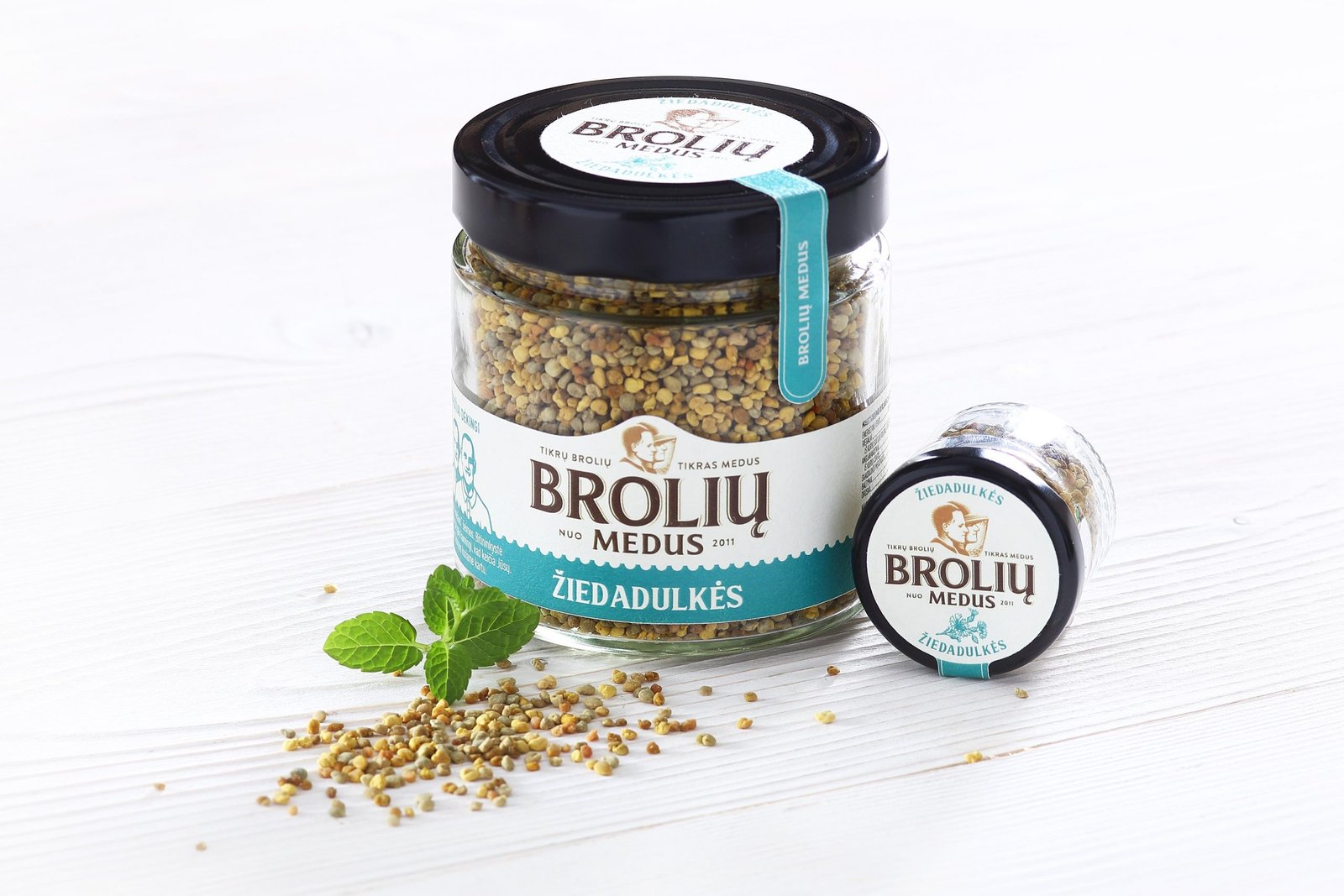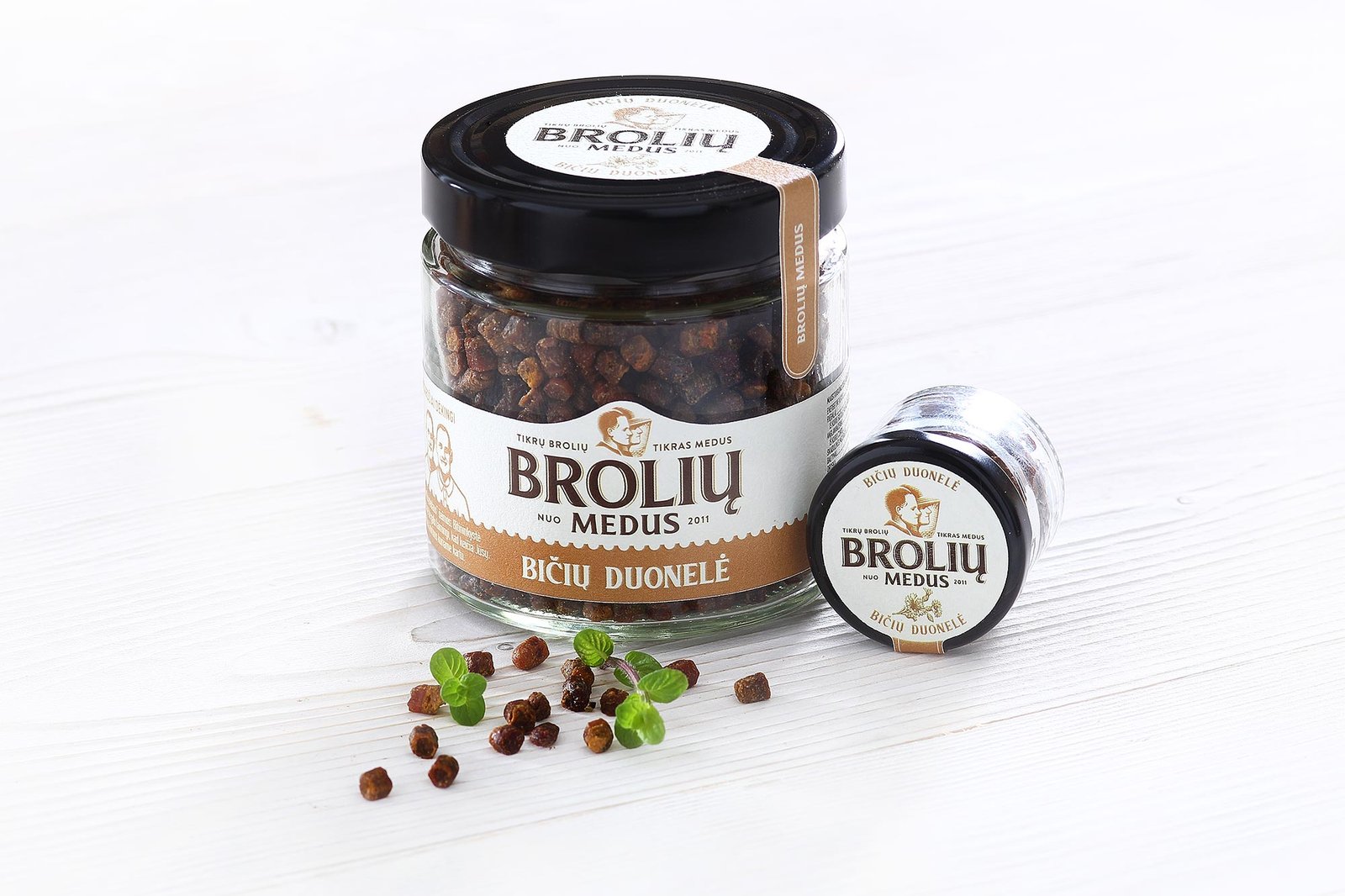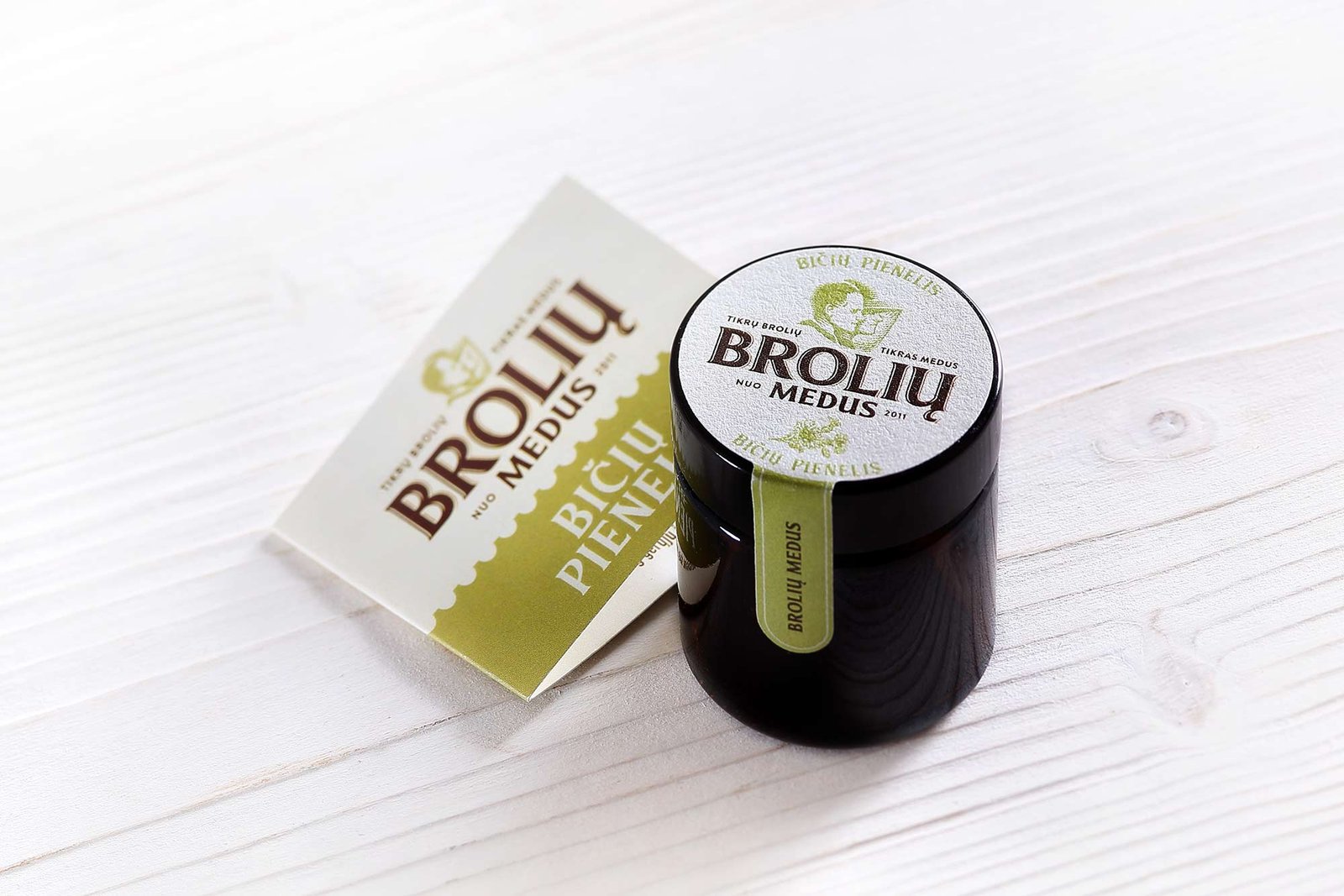Blog’as
Bee glue (propolis) — a natural antibiotic
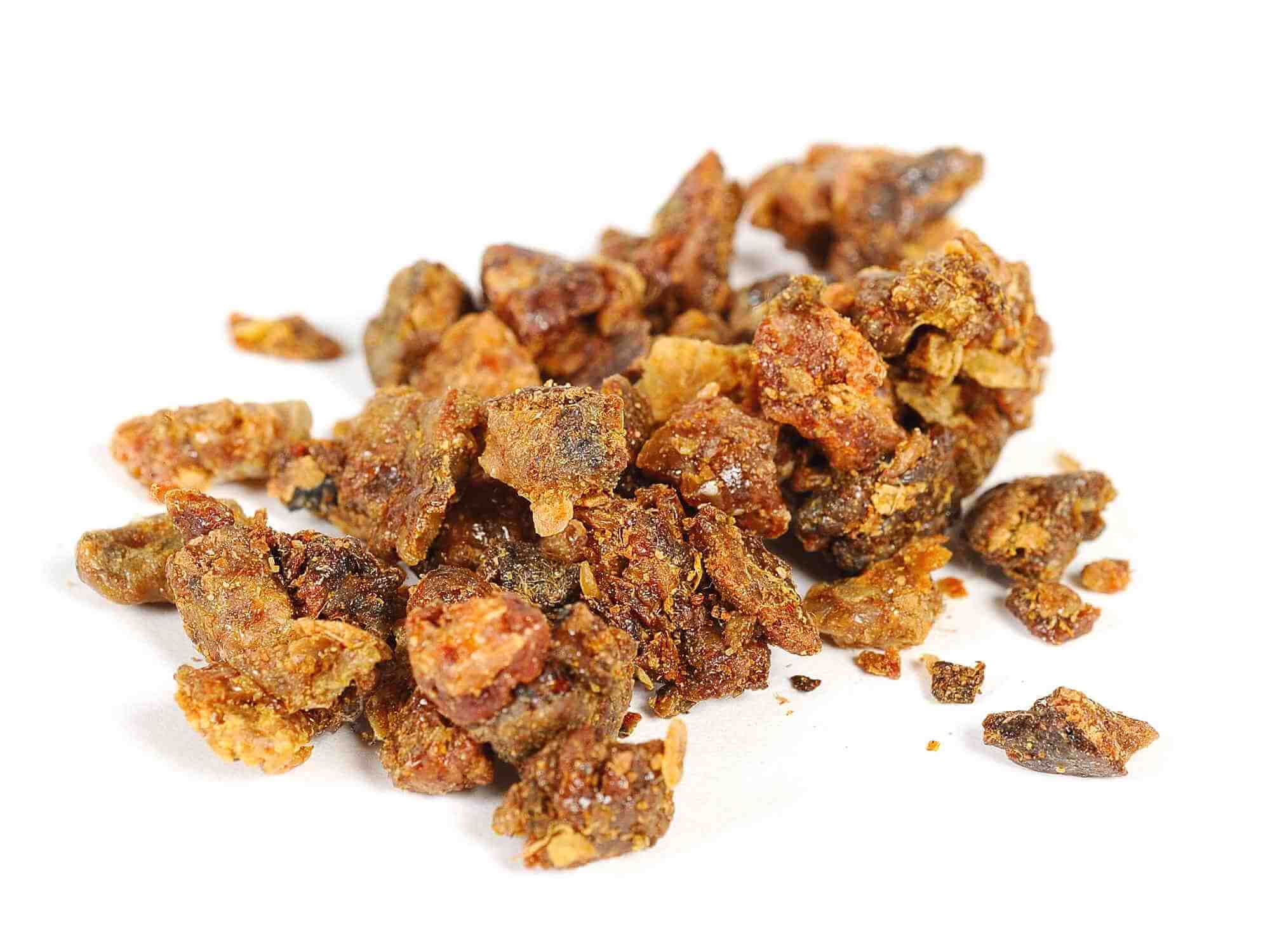
Small but powerful — this is how we would describe bee-made glue (propolis), a substance that has been used as a treatment for illness as long as honey has. In folk medicine bee glue is the main natural antibiotic, or to be more precise, it is a natural substance with an antibacterial and anti-inflammatory effect. Of course, propolis is nothing like sweet honey, but those who know its beneficial properties well don’t mind its slightly bitter flavour or sharp after-taste and use it to protect themselves from all kinds ofailments. So, what is propolis, how can it help us and how do we consume it?
Bee glue (propolis): the bees’ weapon
Bee glue (propolis) is a substance made by worker bees. There usually isn’t much of it in the hive, which makes it highly valued. Much like beeswax, bee glue is a sealant that bees use to seal all kinds of gaps in order to protect themselves from pests. If you’ve already had the chance to try some propolis, then you probably understand why . That bitterness repels many of the bees’ enemies, and also protects them from invisible pests: viruses, fungi, bacteria, mould, etc.
Bee glue (propolis): a masterpiece of the bees, a masterpiece of nature
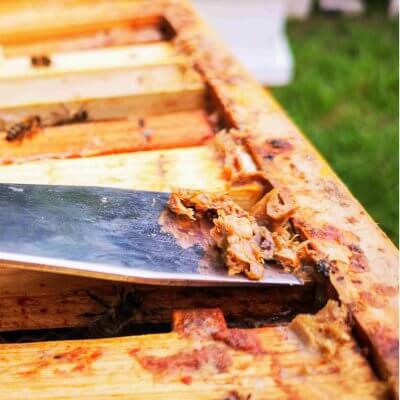
Bee glue is a natural antibiotic that helps bees protect themselves from various diseases and intruders.
Bees make propolis out of tree saps and resins as well as other components, which they mix with their own saliva, also full of various enzymes, and wax. The colour and properties of bee glue depend on where in the world it was made and what plants the bees collected their raw material from. In Lithuania, propolis contains a lot of material from evergreen trees, so our bee glue is a very potent antibacterial substance.
What makes propolis a natural antibiotic?
For many years, scientists have been conducting various studies with this natural bee product, and the results keep surprising. Bee glue has a dual effect: first, it directly destroys microorganisms (bacteria, fungi and viruses) by dismantling their cell walls and membranes and by preventing their reproduction; second, as a strong antioxidant, propolis stimulates immune cell activity, which results in a stronger immune reaction in the fight against any disease. What is more, because of the active ingredients and essential oils it contains, propolis also effectively alleviates pain, improves mood and helps combat depression. Perhaps the greatest reason for consuming propolis more often, not just alongside various medications but also instead of them, is the fact that the positive effect of propolis on our bodily systems and its antimicrobial effect do not come at the cost of healthy cells, which is, unfortunately, what happens with many other chemical medications.
Read more about the properties of bee glue in our article What is propolis, what benefits does it offer and how should we consume it?
Propolis consumption
Back in the old days, propolis was chewed in order to maintain oral hygiene or simply placed on an aching tooth. Now, the most widespread method of consuming propolis is in the form of a propolis tincture, which can easily be made at home:
- Dissolve 40 g of bee glue/propolis in a glass container filled with 300 ml of 70% ethyl alcohol. If the alcohol you have is stronger, it can be diluted with boiled water;
- Keep the container sealed and away from direct sunlight for two weeks, shaking and stirring the tincture every day;
- • After two weeks, the resulting tincture should be strained and decanted into bottles with spray pumps. Consume as necessary, but spraying several times into the mouth in the morning and evening works best.
Find more bee glue recipes here: How to prepare bee glue extract.
We often prefer to consume synthetic medicine and trust pharmaceutical companies more than natural bee products. However, the natural alternative can sometimes be even more effective than drugs synthesised in the lab. And most importantly, natural bee glue can be consumed on a preventive basis to protect yourself and your close ones.
Our Lithuanian bee products
Bičių žiedadulkės
€2.20 – €6.80Bičių duonelė
€2.70 – €14.80Bičių pienelis (apilakas)
Original price was: €28.60.€24.30Current price is: €24.30.Sources:
- Pasupuleti, V. R., Sammugam, L., Ramesh, N., & Gan, S. H. (2017). Honey, Propolis, and Royal Jelly: A Comprehensive Review of Their Biological Actions and Health Benefits. Oxidative medicine and cellular longevity, 2017, 1259510. https://doi.org/10.1155/2017/1259510
- Wagh V. D. (2013). Propolis: a wonder bees product and its pharmacological potentials. Advances in pharmacological sciences, 2013, 308249. https://doi.org/10.1155/2013/308249
- Bankova, Vassya. (2005). Recent trends and important developments in propolis research. Evidence-based complementary and alternative medicine : eCAM. 2. 29-32. 10.1093/ecam/neh059.





